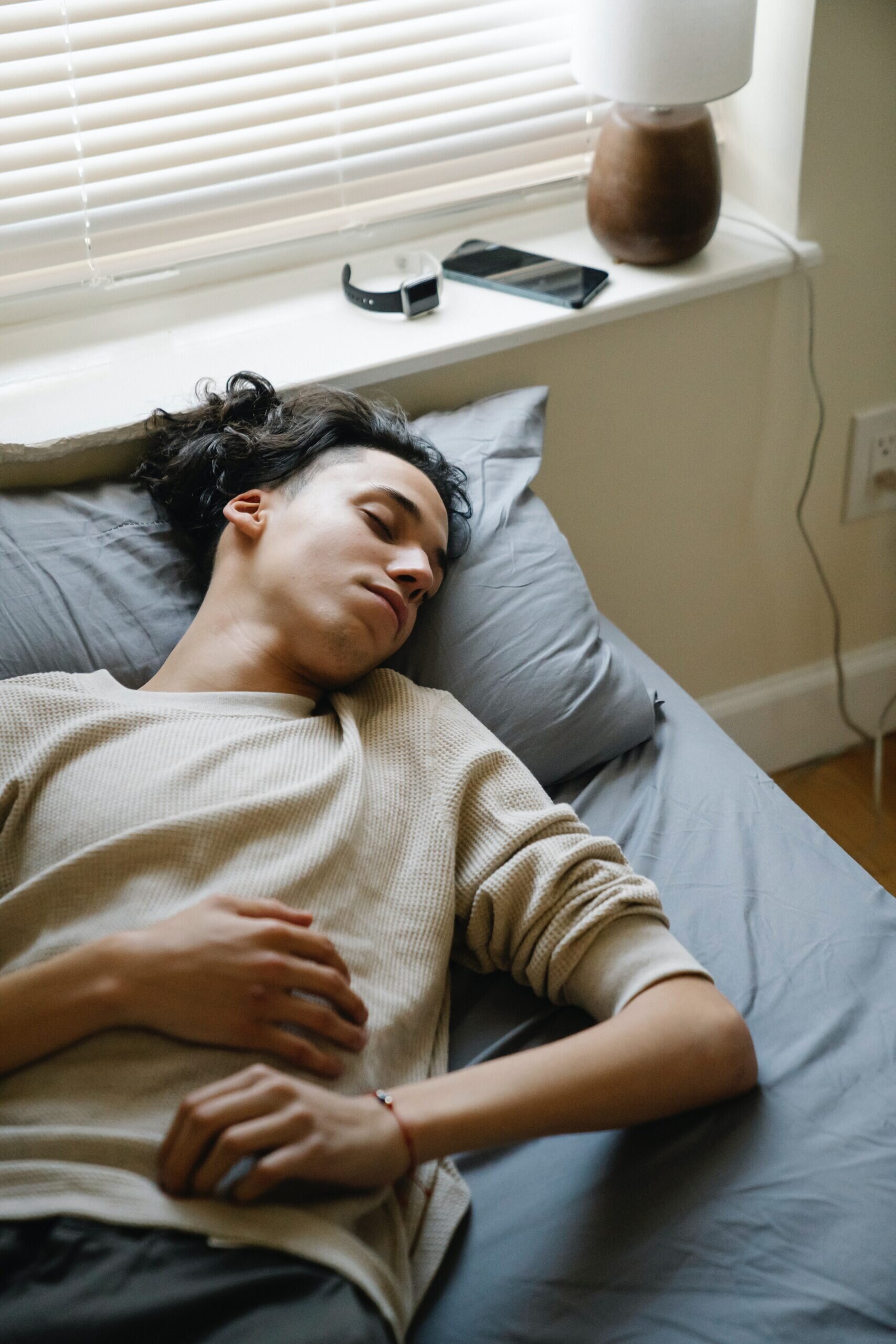What you can expect

As a young person, your body and brain are growing very quickly, so you may need more sleep than other members of your family.
It gives you energy for the next day and helps you feel better!
You may also be learning a lot at school, college or university. Getting a good night’s sleep helps you to think better and remember more of what you are learning or experiencing.
How do I know if I’m getting enough sleep?
It’s often easier to tell when you need more sleep. Without enough sleep you might:
- Find it hard to wake up
- Find it hard to concentrate during the day
- Feel moody or depressed
You should try to get between 8 and 10 hours of sleep every night to help you stay fit and healthy.
Tips to help you sleep
If you’re struggling to sleep, you’re not alone. It’s very normal to go through phases where you find it hard to fall asleep.
Here are some tips to help:
Have a shower or bath and get cosy in your nightwear. Try to go to bed at the same time every night.
Have a light snack or a glass of milk, and take some water up to your bedroom with you
Try not to use your phone or do your homework in bed – try to be in bed with the lights out for at least 8 hours every night.
Exposure to light from your phone, computer or tablet can make it more difficult to fall asleep.
Having your phone nearby can also make it tempting to check notifications late into the night, cutting into your sleep time.
If you feel you could benefit from a nap, try and keep it shorter than 30 minutes, and before you have your dinner.
But try to avoid vigorous exercise in the evening as this may keep you awake!
Tea, coffee and energy drinks keep you awake and can make it hard to fall asleep.
It’s more difficult to sleep in a bright, noisy room, so try keep your room cool, dark and quiet. Make sure your bed is warm and comfortable.
Fill your bedroom with things that relax you. Try to take away anything that might keep you awake, makes noise or makes you feel stressed.
Lie ins are great, but getting up within 2 – 4 hours of usual wake up time up time will help you keep to your routine, especially if you find it difficult to fall asleep on Sunday night before a week of school, college or work.
With family, friends and school, it can be hard to fit everything into a day.
If you often struggle to get 8 hours a night, you might need to cut down on what you’re trying to do so that your body and mind get enough time to refuel.
These can help to calm your mind down as you know you will remember to do those things tomorrow! Set aside some time before bed to make plans for the next day.
Mindfulness, meditation or listening to some quiet, relaxing music may also help you to calm you your mind before bed.
Instead of lying awake in bed worrying about not sleeping, put on a small light and read a book or magazine for a short time, then turn the light off and try to sleep again.
It helps if the reading matter isn’t too interesting or exciting, so it is easy to put down and pick up again another time.
Still struggling to sleep?
If you’re still struggling to fall asleep after trying these tips for several weeks, we recommend that you contact your GP for more advice.
Helpful resources
Here are some online resources about sleep that you may find helpful.
Blogs
Check out our blogs about sleep and why it is important.

